On World Book Day, 13 contributors to Premier Christianity share the Christian book that has fundamentally impacted their faith, or is currently rocking their world
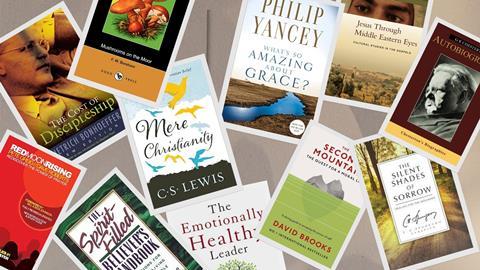
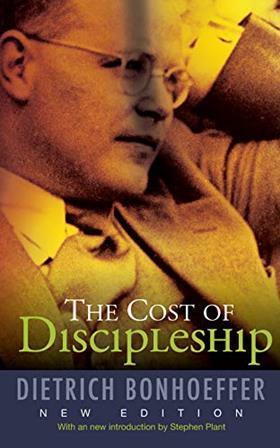
I read The Cost of Discipleship by Dietrich Bonhoeffer (Touchtone) when I was 19 and training for ministry. It had a profound impact on me as an evangelist. Bonhoeffer warns against cheap grace and making the gospel what people want to hear. It showed me what it would really mean to follow Jesus with everything I had. After scripture, it’s the Christian book that has had the biggest impact on me and I would recommend it to others. It’s not for the faint hearted, but it lays out what it means to follow Jesus, the cost of following him and the potential outcomes for the kingdom as a result.
Gavin Calver, CEO, Evangelical Alliance
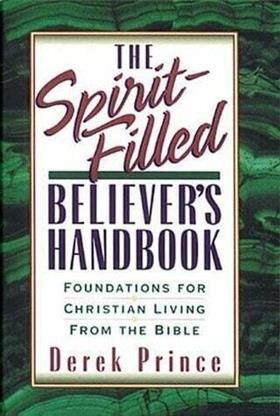
I obtained a copy of The Spirit Filled Believer’s Handbook by Derek Prince (Send the Light) in the early 1990s from a local Christian bookstore. I was hungry for solid teaching and eagerly devoured it. The book is based on radio talks by the author first broadcast in the 1960s. I was very struck by his desire to be thoroughly biblical in all his teaching. Even the contents are structured around the foundations listed in Hebrews 6:1-2. There are some memorable stories and anecdotes which illustrate and complement his teaching. I still rate it as the best book on the foundations for Christian life.
Tim Dieppe, head of public policy, Christian Concern
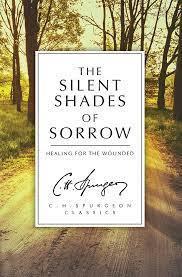
The Silent Shades of Sorrow by CH Spurgeon (Christian Heritage) is the book I return to more than any other. It is a collection of Spurgeon’s talks on wilderness seasons and spiritual depression, and it has helped me through some of the most difficult times of my life, pointing me back to the tenderness of Jesus. It’s such a precious book to read in difficult seasons but also in joyful ones, to remember that Jesus is the one who holds our hearts in his hands and binds them up in the most tender and beautiful way.
Natalie Williams, CEO Jubilee+
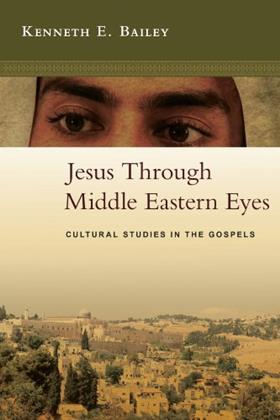
I found out about Kenneth Bailey’s Jesus Through Middle Eastern Eyes (SPCK) through a lecturer at the London School of Theology. As a 21st-century Westerner, it helped me get a much better feel for what Jesus was actually teaching in his parables, and how a first-century Jew might have heard them. These so-called simple stories of Jesus became rich, alive, powerful, beautiful and shocking!
Joe Warton, writer, researcher and coach
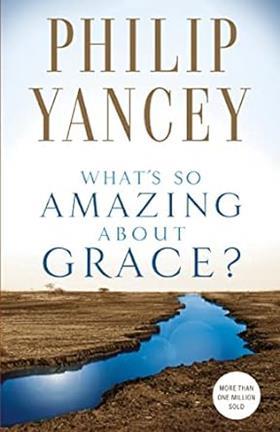
I was a teenage striver. In the early stages of mental illness, I followed rules to feel safe. If there were no rules, I made some. This applied to all areas of my life, including my faith. One day, my Bible class teacher shared a quote: “Grace means there is nothing we can do to make God love us more…and nothing we can do to make God love us less.” I was soon reading Philip Yancey’s What’s So Amazing About Grace? (Zondervan). It showed me a path towards freedom from rigid religiosity. I recommend it to anyone struggling similarly.
Dr Sharon Hastings, author and mental health advocate
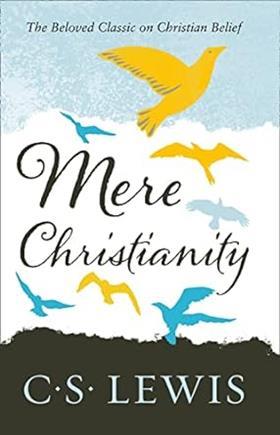
I bought Mere Christianity (Collins) by CS Lewis for myself when I was about 14 years old. It offered me the first example of a faith that was more than personal (or individual) and that was intellectually serious. This sowed the seeds for my later grappling with theology and its necessary engagement with the real world in all its messiness and contradictions.
Rt Rev Nicholas Baines, Bishop of Leeds
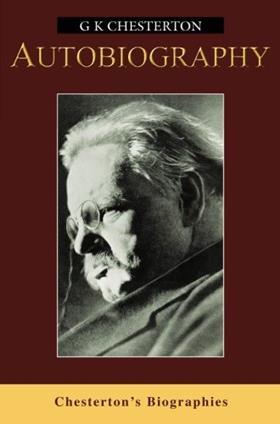
Sometimes it just takes a few words to kick off a chain reaction that changes the direction of your life. I was a student, a new Christian. A friend passed on some writing that contained a simple idea that rewired everything for me. Just a phrase from GK Chesterton’s Autobiography (Penguin): “At the back of our brains…[there is] a forgotten blaze or burst of astonishment at our own existence. The object of the artistic and spiritual life [is] to dig for this submerged sunrise of wonder”.
It was an epiphany. For the first time, these words connected the dots between creativity, imagination, wonder and the spiritual longing at core of what it means to be human. This was the hermeneutic of awe and wonder that I’d been searching for: we are most fully alive when connected with our creator. I’ve been chasing that sunrise of wonder ever since.
Rev Al Gordon, rector, SAINT Church London
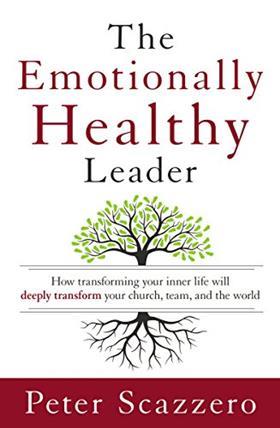
The Emotionally Healthy Leader by Pete Scazzero (Zondervan) had a huge impact on my leadership. It really got beneath the surface of my life, helped me to reflect on the shadow-side of my strengths, the impact of my family of origin, and gave me a vision for becoming a “contemplative activist,” something to which I am still aspiring today. One of those rare reads that had an immediate tangible impact on my life and leadership, and continues to do so to this day!
Tim Alford, Limitless national director
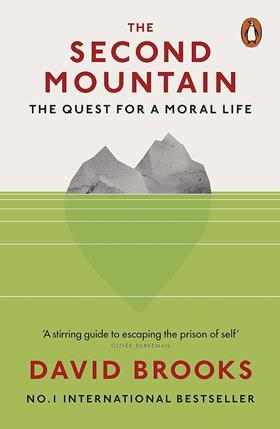
The Second Mountain: The quest for a moral life (Allen Lane) is the book that is presently rocking my world. David Brooks writes eloquently, beautifully and wisely on the way that “seasons of suffering have a way of exposing the deepest parts of ourselves and reminding us that we’re not the people we thought we were. People in the valley have been broken open. They have been reminded that they are not just the parts of themselves that they put on display.”
I’m climbing the second mountain, the mountain that calls me away from ego and towards self-sacrificing joy, and this book has been a companion of kindness on the journey.
Sarah Yardley, mission lead, Creation Fest
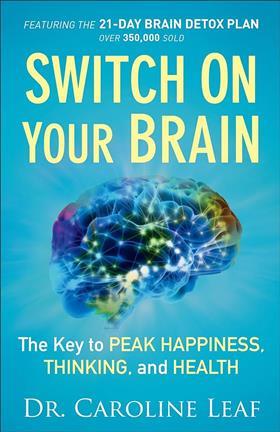
I grew up in a family where my two older sisters were certified geniuses. I was given labels like “not smart”. As I began to believe this, my grades suffered. It was a relief to be introduced to the concept of neuroplasticity – the idea that my brain will continue to grow even into old age.
Caroline Leaf’s book Switch on your brain (Baker Books) is one of the best that I’ve read on the subject. Each chapter begins with a Bible verse and scientific concept. For example: “Faith is the substance of things hoped for, the evidence of things not seen” (Hebrews 11:1), is linked to: “Thoughts are real, physical things that occupy mental real estate. Moment by moment, every day, you are changing the structure of your brain through your thinking.” I sometimes struggle with faith, so to have science to back up what I believe has been liberating.
Muyiwa, recording artist and station director of Premier Gospel
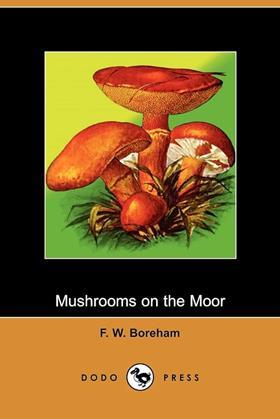
The Christian book that rocked my world was Mushrooms on the Moor (Epworth Press) by FW Boreham. Boreham was a pastor and preacher in the early part of the 20th century in New Zealand and Australia. He wrote almost 50 books and was beloved around the world, including being one of Billy Graham’s favourite writers.
He was a wonderful communicator and a gifted evangelist. What makes Boreham so amazing is his ability to take an everyday object or experience and illustrate something of the gospel. Every time I read him, he makes me think and challenges me to find ways to communicate the gospel afresh to this next generation.
Dr Andy Bannister, director of the Solas Centre for Public Christianity
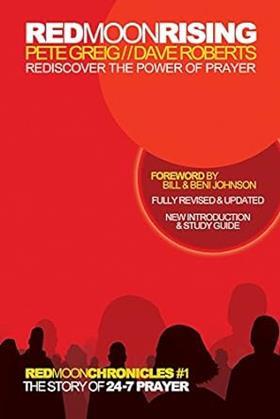
My favourite book (outside of the Bible) has got to be Red Moon Rising by Pete Greig. I first read it not long after moving to the UK at a very pivotal time in my ministry career. The adventures of faith, prayer and mission that Pete takes us all on is truly breathtaking. I find him so relatable and yet these are blatantly God-sized stories fuelled by intimacy with Jesus and a heart for the lost. The book inspired me to pursue my own calling and vision, and I haven’t looked back since.
Chip Kendall, soulchildrenuk.com
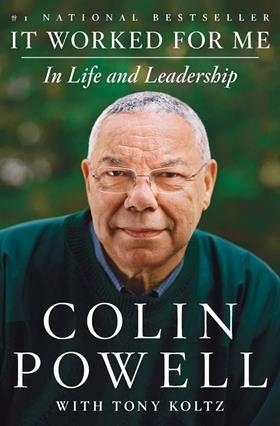
A few years ago, I came across a small book that I now treasure. It is easy to read, clear and concise. Not surprising: it was written by a former soldier. It Worked for Me: In life and leadership is a book by former US secretary of state, Colin Powell. In it, he highlights, with simplicity and humility, a few rules that have helped him along the way. One message that I like is “get mad and then get over it”. Simple and clear. And yet at times we allow circumstances to keep us angry and we lose our focus. “Avoid having your ego so close to your position that when your position falls, your ego goes with it” is another one that I like to think of. I have interpreted that to mean – it is not about the person, it is about the idea. The idea can fall but take care not to make the person and the idea one and the same. You get a sense of someone of integrity through his writing. It’s working for me in life and leadership too!
Amanda Khozi Mukwashi, former CEO of Christian Aid


































1 Reader's comment